Trump Survives Assassination Attempt: Of Bullet, Blood, Ballot, and Bravery
One Gunman Neutralized on the Spot; One Innocent Attendee Dies of Bullet Injury
Divine Intervention or Mere Coincidence?
I personally believe it was divine intervention that saved Donald Trump—indeed, not just Trump, but the very essence of the United States as we know it. During an election rally in Butler, Pennsylvania on a bright Saturday afternoon, Donald Trump became the target of bullets fired by a gunman from a nearby rooftop. One of the bullets scraped past his ear, causing an external injury, leading to profuse bleeding.
Immediate Spread and Reaction on Social Media
As news of the incident spread rapidly over social media—long before traditional media could catch up—images and video clips emerged, documenting the precise sequence of events. Iconic photographs, including one from the New York Times, showing the bullet's path, quickly went viral, capturing the dramatic and near-tragic moment in vivid detail.
Chaos and Immediate Response
As the sound of bullets echoed through the open stadium, Donald Trump, who had been standing and delivering his speech, suddenly seemed to slump to the ground. In what felt like an eternity, though it was only a few seconds, Secret Service agents leapt into action, covering him to protect against further shots. After an agonizingly long wait—again, mere seconds—Trump rose with tremendous relief, appearing almost like the mythical Phoenix rising from the ashes.
While the FBI investigation is ongoing, we know that the gunman. a white man, was immediately neutralized on the spot by the security personnel and we can confirm the collateral death of an innocent participant in the rally.
Defiant Stand and Rallying Cry
Though the exact words were unclear amid the chaos, lip-reading clearly revealed Trump saying, "Fight, fight, fight," as he raised his right arm in defiance. This act of resilience was a powerful gesture in favour of a united and solidified United States of America.
Gun Culture and Its Implications
The United States, a country deeply enamoured with its firearms, enshrines the right to bear arms in the Second Amendment. Despite numerous tragic shootings in schools and public places like shopping malls, meaningful restrictions on weapon possession remain elusive. However, the assassination attempt on Trump transcends the usual debate on gun rights—it poses questions about the very future of the Union.
Historical Context of Political Assassinations
Political assassinations are not unprecedented in the U.S. Four presidents, including the iconic Abraham Lincoln and John F. Kennedy, have been assassinated while in office. John F. Kennedy was tragically killed in 1963 was the last president to have been assassinated while in office. In March 1981, President Ronald Reagan was also seriously injured in an assassination attempt, though he survived after an emergency surgery. This historical context underscores the gravity of the recent attempt on Trump's life.
The Fragility of the Union
The attempted assassination of Donald Trump is distinct on many levels and raises profound questions about the fragility of the Union. I firmly believe that had the bullet swerved by just a few centimetres, the United States could have found itself in midst of widespread public rioting, if not on the brink of a formal civil war. Presidential campaigns are always contentious, but the Biden-Trump showdown has been one of the most fiercely contested, if not the most vitriolic, electoral battles in recent memory, would have provided the proverbial haystack that was ignited by one fatal bullet.
Leadership Under Scrutiny
Despite his legal troubles and the guilty verdict by a New York jury in the business falsification case, often referred to as the Stormy Daniels case, Donald Trump continues to lead the polls against the ageing and perceived senile Joe Biden. Biden's abysmal performance in the one-on-one debate with Trump, coupled with his serious gaffes at the NATO summit, has created significant doubts not only among American voters but also among people worldwide. Concerns about whether he is physically fit and mentally agile enough to be the President of the United States—and by extension, the Commander-in-Chief of the Armed Forces—are rampant.
The Historical Weight of a Single Bullet
A single bullet, especially when it claims the life of an iconic hero, has often been the catalyst for major historical upheavals. The first shot fired at Lexington marked the beginning of the American Revolutionary War in 1775. Similarly, the Boston Massacre in 1770 fueled the American Revolution. More recently, the assassination of Archduke Franz Ferdinand of Austria-Hungary in 1914 triggered the First World War.
Fortuitous Escape and Potential Consequences
It was not only fortunate but extraordinarily fortuitous that Donald Trump, seen by many Americans as the next president, escaped the assassin’s bullet by a whisker. Considering the potential consequences if the worst had happened is sobering. I am convinced that such an event could have led to widespread riots, if not an open civil war, further deepening the rift between Democratic and Republican supporters.
Dismaying Official Response
I was particularly dismayed by President Biden's first official response, which took over an hour to appear on his official Twitter handle. His statement felt like a formal announcement, with the denunciation of violence buried in the third or fourth sentence. Elsewhere, he remarked that he couldn't comment further as he had an opinion but lacked the facts. This lukewarm, if not unsavoury, response highlighted not only a lack of leadership from Biden and his deputy, Vice President Kamala Harris—who offered a similarly tepid response—but also a tremendous missed opportunity to reach out and start the healing process, regardless of which party wins the presidential election. After all, a president's term is four years, and the United States is set to celebrate its 250th anniversary of independence on July 4, 2026.
Intriguing Public Reaction and Conspiracy Theories
The wider American public's response was equally intriguing, if not astonishing. The U.S., a nation that loves conspiracy theories, whether about UFOs or the Kennedy assassination, saw Twitter and other social media platforms like Meta/Facebook and Threads flooded with conspiracy theories. Many were quick to label the incident as a scheme concocted by Trump and his team to boost his popularity. Some claimed no shots were fired, or that the bleeding was fake, suggesting instead that he was injured by a glass shard from the teleprompter hit by the bullet. Some unsavoury comments even expressed regret that the bullet missed its intended target. An event that should have unified the nation instead revealed the deep and pervasive distrust within American society, highlighting the urgent need for a national leader capable of healing these divisions. Whether Biden or Trump, if he wins the election, can achieve this remains an open question.
Silicon Valley's Uncharacteristic Involvement
Silicon Valley leaders, typically known for their reluctance to engage in electoral politics, especially presidential elections, broke their usual silence following the assassination attempt on Donald Trump. High-profile figures, including Sundar Pichai, Tim Cook, Elon Musk, and the Microsoft CEO, Satya Nadella were quick to condemn the political violence and express support for Trump. Even billionaires like Bill Ackman, who had previously been seen as critics or neutral figures, openly endorsed Trump’s candidacy. Nikki Haley, Trump’s Republican challenger of Indian origin, also strongly condemned the assassination attempt.
A Contrast in Leadership
Trump’s initial reaction, shared on Twitter by his media team, demonstrated a measured and mature approach. He condoled the death of an innocent attendee who fell to the assassins bullet and thanked the Secret Service and law enforcement agencies for their swift and effective response. The message was one of healing and unity, rather than a blame-game into which another person might have indulged. This starkly contrasted with President Biden’s delayed and tepid response, highlighting Trump's leadership qualities, which often get overshadowed in the noisy atmosphere of election campaigns and debates.
Iconic Imagery and Media Coverage
An iconic photograph of Trump rising like a Phoenix with the American flag in the background is poised to become a part of American history. The New York Times photographer, Doug Mills, managed to capture a dramatic image of the bullet whizzing past Trump’s ear, thanks to a high-speed camera with a shutter speed of 1/8000 of a second. This photograph not only illustrates the proximity of the bullet but also serves as conclusive evidence of the assassination attempt. Nevertheless, some skeptics might dismiss it as a fabricated story by biased media.
Personal Reactions and Tech Innovations
Our elder son, a tech enthusiast stationed in Austin, Texas, was enjoying a quiet Saturday afternoon when the news broke on social media. He immediately alerted me, and my reaction went from disbelief to relief upon learning that Trump had survived, followed by dismay at the reaction of top Democratic leaders and a significant portion of U.S. Twitter users. Using photographs from the incident, my son employed artificial intelligence software to create a short video clip simulating the sequence of events as if the camera had panned around at that moment. This innovative clip elicited a variety of comments from his followers.
Global Reactions and Condemnations
World leaders, including the newly elected UK Prime Minister, were quick to denounce the attempted political assassination and expressed relief and prayers for the recovery of the presumptive Republican Party nominee. Messages of support and condemnation of the violence poured in from Canada, Mexico, Europe, as well as Russia, China, and Japan. This global reaction underscored the significance of stability in American leadership and the widespread concern over the potential implications of such an incident.
Indian Reactions and Domestic Controversies
Back home in India, both Prime Minister Narendra Modi and opposition leader Rahul Gandhi condemned the political violence and prayed for Donald Trump’s complete and speedy recovery. Given the time zone difference, their tweets came a few hours later, which is quite understandable. However, it is inexplicable and rather condemnable that some right-wing oriented Twitter handles used this grave occasion to denounce Rahul Gandhi and link his speeches during the Lok Sabha election campaign to inciting violence. While it is beyond the scope of this piece to analyze the election speeches of either Rahul Gandhi or PM Modi, this behaviour reflects poorly on those who exploit such serious events for political point-scoring. May God grant them more sense, and perhaps their masters should rein them in.
Implications for the Upcoming Election
The result of the U.S. presidential election, scheduled for November 5th, now seems like a foregone conclusion, despite the legal challenges Donald Trump faces. Joe Biden was already trailing Trump, and this assassination attempt will likely push him further out of the race. Whether the Democratic Party decides to replace Biden at this stage is uncertain—in my opinion, they will not. These upcoming months and weeks are crucial for the United States, not only until the election date but also until January 2025, when the new president takes oath and assumes office. Americans often say, "May God bless America," and perhaps it was due to these collective prayers that Donald Trump survived. Otherwise, the United States of America could well have been on the path to becoming the untied states of America.

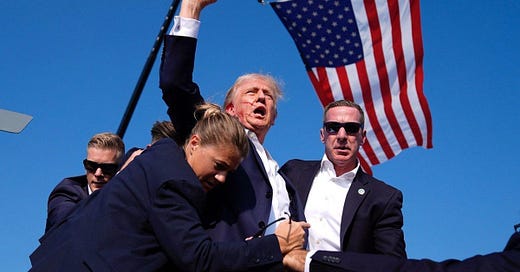



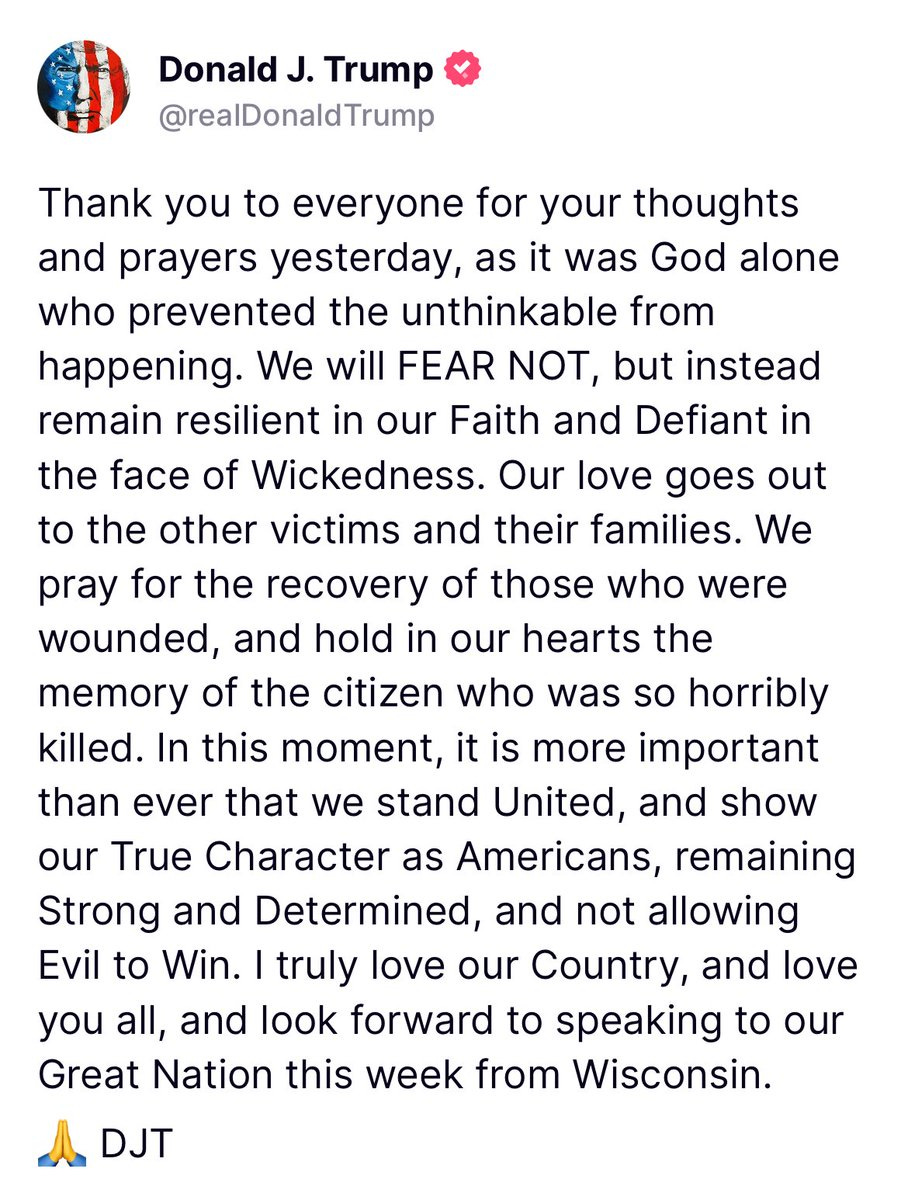
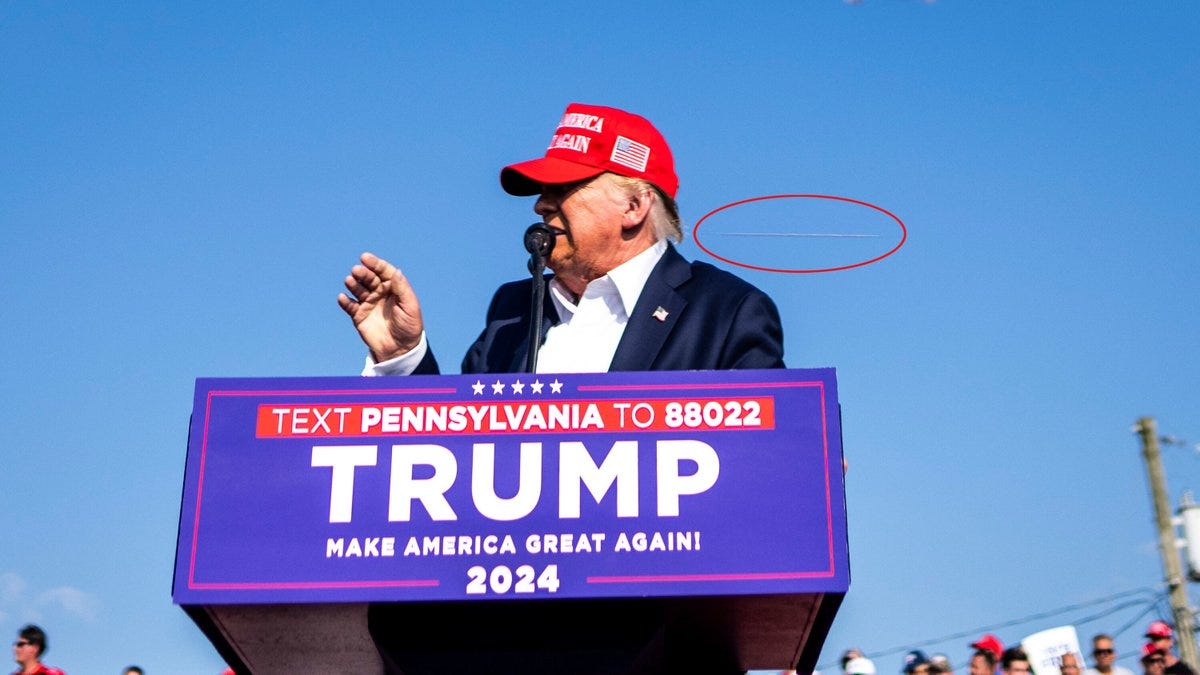
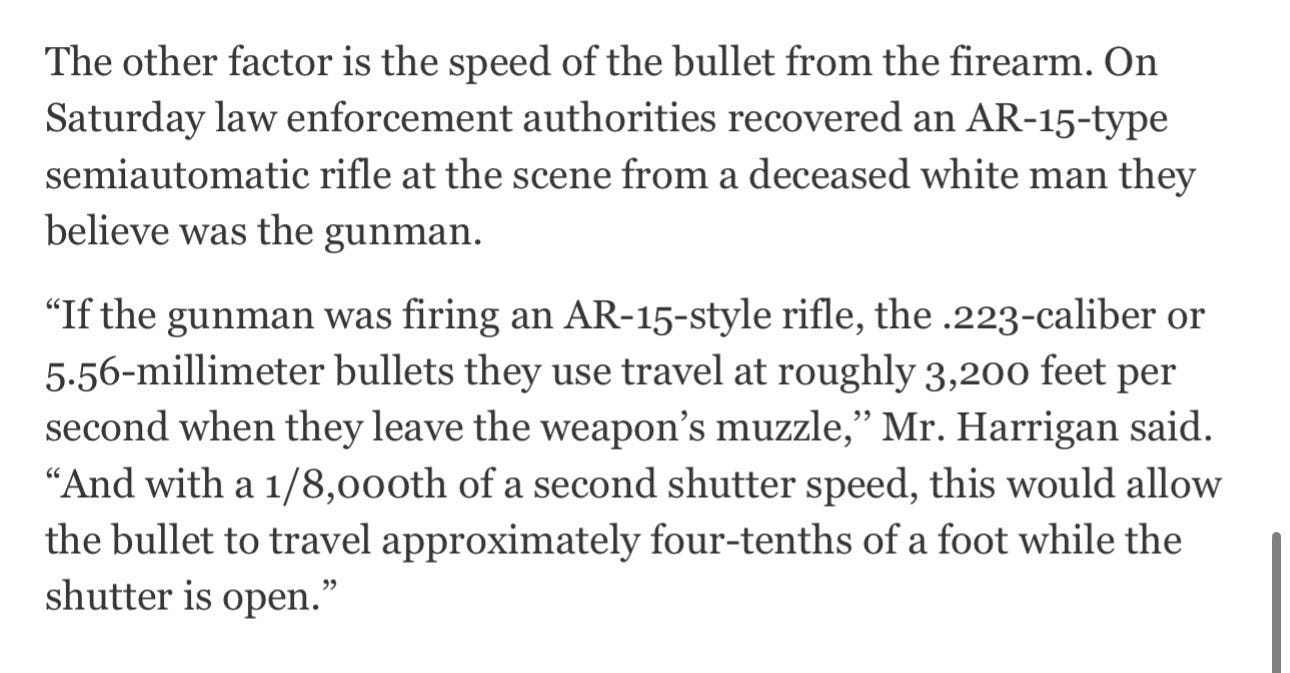
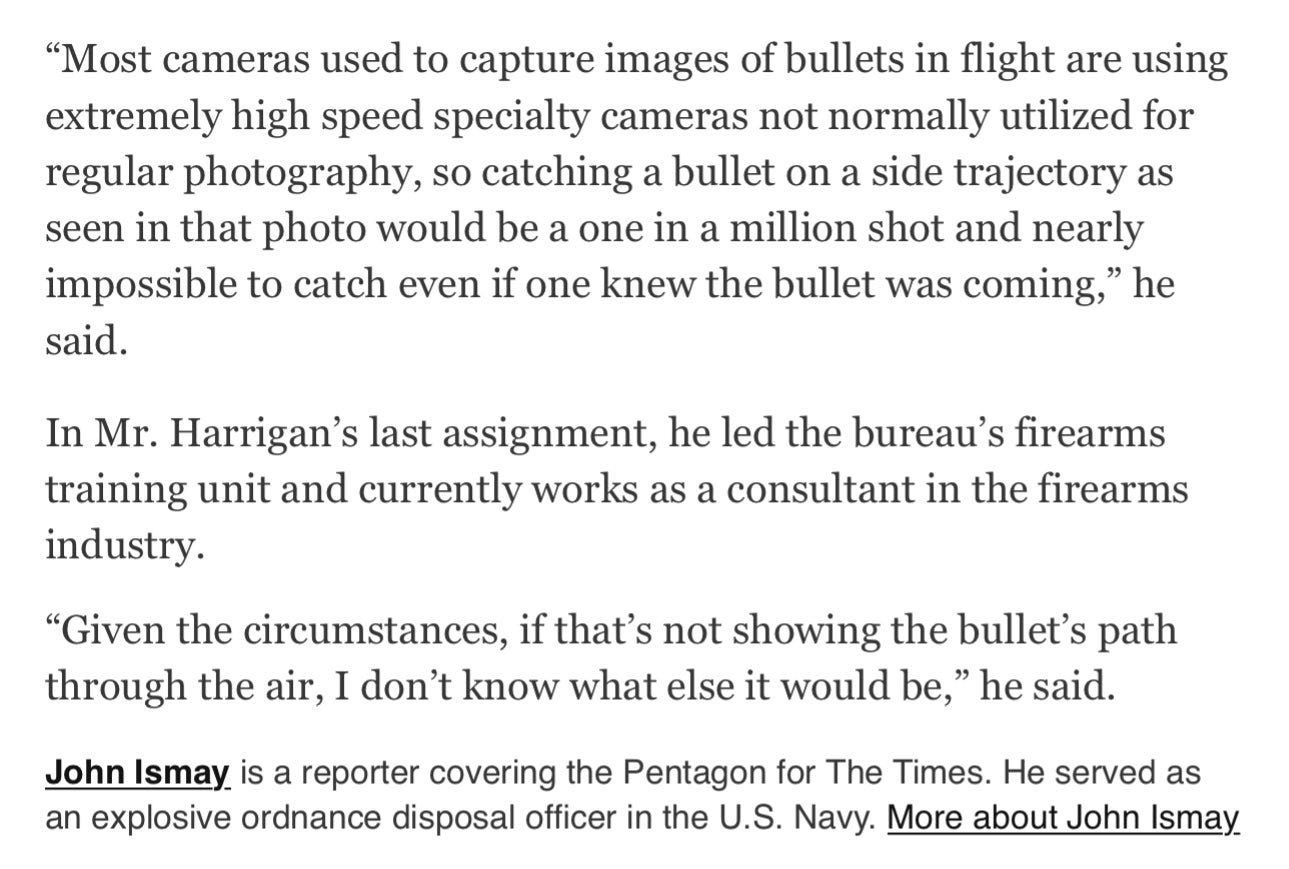
Very candid analysis of an unfortunate event. How far it impacts the forthcoming election of the US President remains uncertain. I don’t think that the election result is a forgone conclusion at this stage.